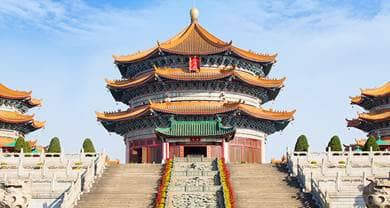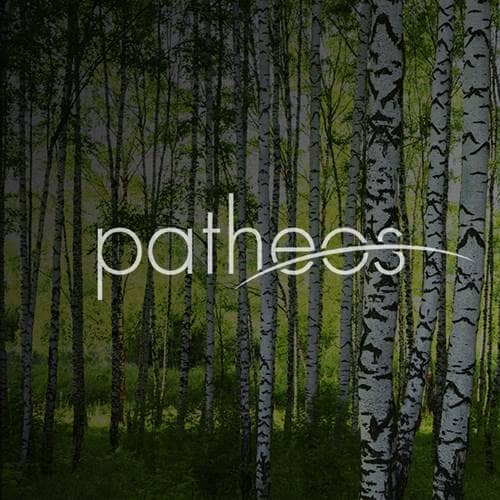- Trending:
- Pope Leo Xiv
- |
- Israel
- |
- Trump
- |
- Social Justice
- |
- Peace
- |
- Love

RELIGION LIBRARY
Taoism
Taoism: Suffering and the Problem of Evil
Taoist ideas about suffering and evil reflect a variety of influences, including early Chinese religious beliefs, Buddhist beliefs, and popular religion. Different sects have different beliefs, and these change over time, and individuals also have their own beliefs. At times parallel beliefs are held that might seem contradictory. These contradictions arise out of the multiple belief systems from which individual beliefs are formed.
According to the Taode jing and Zhuangzi, nature itself is amoral; it cares nothing for individuals. The Zhuangzi emphasizes that death is part of a natural cycle, and that illness, death, and misfortune are inevitable aspects of human life. Thus, they are not punishments for misdeeds, or manifestations of evil.
The Taode jing states that nature is not sentimental and treats the people like sacrifices. Individuals are best off if they accommodate themselves to nature's laws and patterns, because to go against nature will only bring difficulty and trouble. When humans deviate from the natural order, societies will develop that are harmful to many. On the other hand, when the ruler is enlightened, or advised by an enlightened sage, the people he rules will exist in harmony with one another and with nature.
According to ancient Chinese religious beliefs, which differ quite a bit from the above but carried over into Taoist religion, each person has multiple souls: three hun, or cloud souls, and seven po, or bone souls. The hun are light and naturally move toward heaven, while the po are heavy and earth-bound, and deliberately aim to destroy the body so that they may rejoin the substance from which they came. The po will also report one's misdeeds to the heavenly officials.
Another perspective on suffering is offered by Taoist texts that say that illness is caused by three corpse worms that reside in the body. In some texts these are described as the three cadavers and nine worms. These, like the po souls, will sometimes report an individual's transgressions to heavenly officials. Sometimes the three cadavers will also conspire with the po souls to cause the body harm, and they will encourage demons to enter the body. Demons can cause illness, to punish a person, or just because they want to.
In order to begin a program of Taoist self-cultivation, once must first expel the worms, or cadavers. Also, there is a Taoist prohibition against eating grain that is based on the fact that the worms find grain a desirable food, and will be encouraged to stay.
Another Taoist belief is that physical health is evidence of purity, and illness is believed to be caused by one's misdeeds. The cure for illness is to confess and be purged of one's sins. To accomplish this one could, for example, have a Taoshi transmit to the proper divine official a talisman that describes the malady and the misdeed that has led to it, expresses contrition, and requests the aid of the official. If the petition is accepted, then the cause of illness will be expelled, and the sufferer will be healed.
In some Taoist groups, one is also held responsible for the sins of one's ancestors, up to ten generations. Thus, sickness is viewed as the result of one's own and one's ancestors' wrongdoings. It is also possible for some to act for the benefit of others, relieving them of their sins. In some cases, a barefoot Taoist priest, that is a priest that is not a trained Taoshi but has some of the same abilities, will undergo self-mortification for the benefit of all. There are also certain Taoist rituals that are designed to cleanse a community from sin or hardship.
Early Taoism emphasized Confucian virtues, which encouraged harmonious community living rather than salvation from sin. Later, most Taoist sects, strongly influenced by Buddhism, adopted many moral rules, and adepts would take precepts — that is, like Buddhist monks and layperson, they would vow not to do certain things that are regarded as sinful. The Buddhist concept of merit was also widely adopted by Taoists.
Some Taoists accepted the Buddhist belief that sin would be punished after death in some form of hellish afterlife existence, and good behavior similarly rewarded in some type of paradise. Some Taoist adepts also worked to accumulate merit, sometimes for their own benefit, and sometimes for others.
From the point of view of many lay people, demons, unhappy ancestors, or orphaned souls are the cause of illness and other problems in life. The Taoshi are their main defense against evil, either by rituals at the community level, or through personal consultations at which the Taoshi may prescribe a talisman or some other form of magical cure to drive away evil and place a person back in harmony with the cosmos.
Study Questions:
1. Why is nature, despite its amorality, of particular interest to the Zhuangzi?
2. What are some Taoist explanations for bodily suffering/illness?
3. How can suffering/illness be dispelled?










